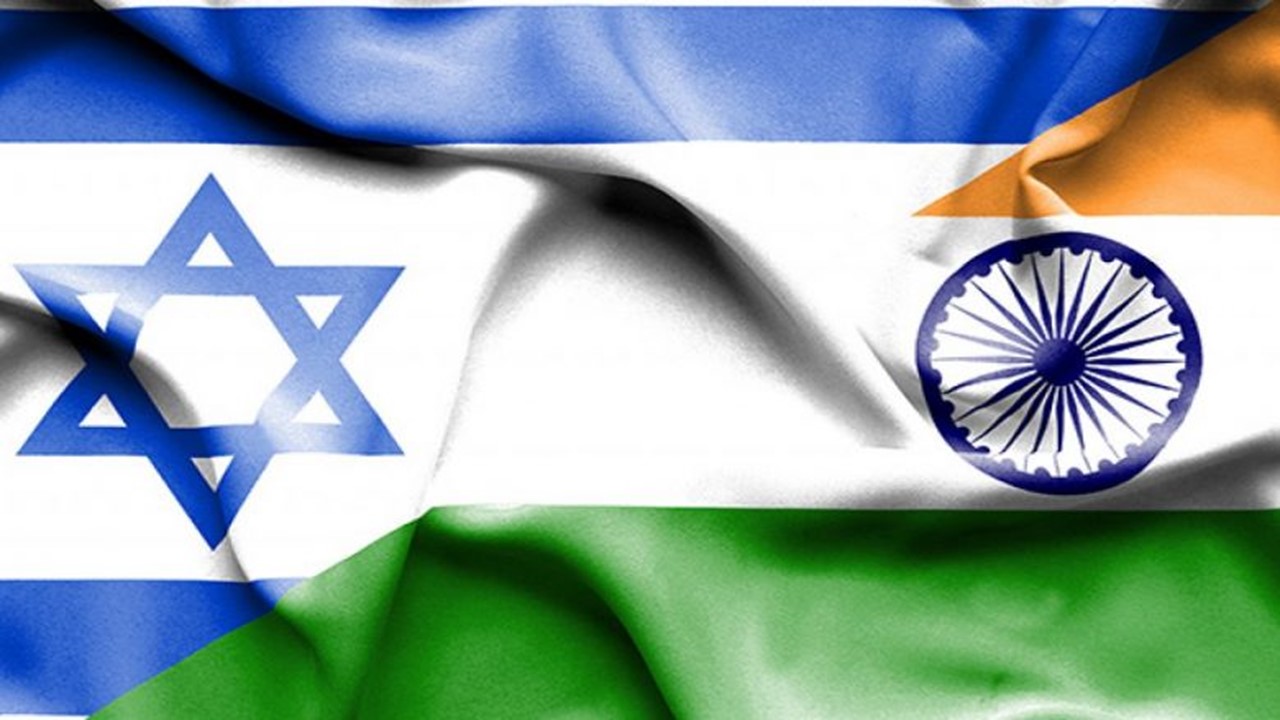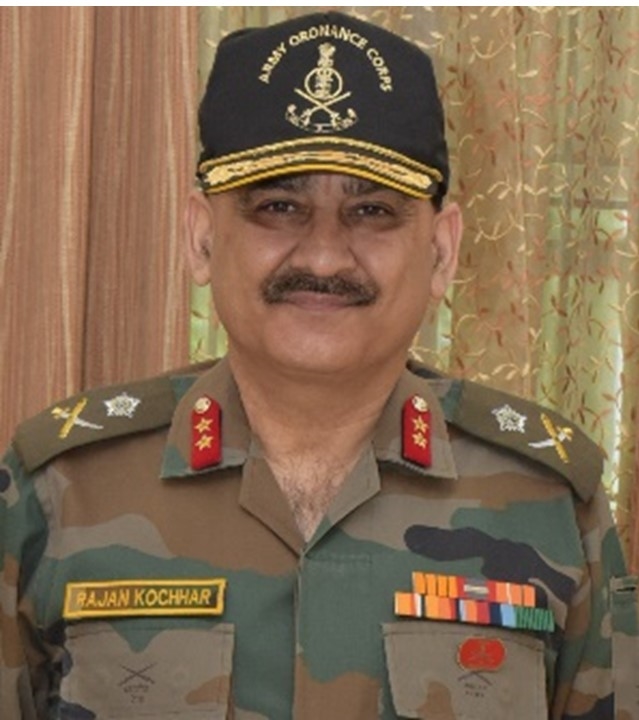
Indo-Israel Relations – Robust As Ever

Indo-Israel relations take us back to 17 September 1950, when India officially recognised the state of Israel. In 1953, we had the first consulate of Israel coming up at Mumbai. Thereafter, it was slow progress in the development of strengthening our relationship with Israel due to a pro-Arab policy adopted by the then Indian Government. Therefore, it was only in January 1992 that India established its embassy in Tel Aviv, the Israeli capital after almost four decades of officially recognising the country.
A clear shift of our foreign policy towards Israel only emerged after PM Modi came to power. It had then become clear to the government how important it was to align with nations having like-minded ideologies and interests. This culminated in the first ever visit of an Indian Prime Minister to Israel, when PM Modi visited the country in 2017. There were number of MOUs signed during the visit which has set the tenor of a strong base of our future collaboration with Israel in many areas of common interest.
Military and Strategic Ties
The military and strategic ties between the two nations extend to intelligence sharing on terrorist groups as well as joint military training. As we near the completion of three decades of our formal diplomatic relations, our bi-lateral ties have expanded into very important areas pertaining to high technology products, space, defence, security and intelligence. Today, we have established a joint committee on science and technology, operational collaboration on cyber security and an agreement on homeland and public security besides host of other bi-lateral agreements. India has been the largest buyer of Israeli military equipment since then and Israel has been the second largest supplier of military equipment to India after Russia since the last six years.
India and Israel have jointly developed the MRSAM or the Barak 8 air defence system that includes advanced radar, command and control systems, and mobile launchers. In September last year, the Indian Air Force inducted a Medium-Range Surface-to-Air-Missile (MRSAM) system capable of eliminating aerial threats such as enemy fighter jets, missiles, helicopters and unmanned aerial vehicles within ranges of 50-70 kms. The delivery of 200 missiles for five regiments, with 40 units each, would begin from 2023. The most significant push to Aatmanirbhar Bharat would get manifested when this system will be indigenously manufactured in India with almost 75 percent indigenous content.
This system has been developed jointly by the Israel Aerospace Industries and the Defence Research and Development Organisation (DRDO). Other firms involved in the project include Israeli firm Rafael, Bharat Electronics Limited, Bharat Dynamics Limited and Larsen & Toubro. India and Israel have also signed up separate deals worth around $3 billion over the last four years for advanced surface-to-air missile systems for the three services. India’s Defence Research and Development Organization (DRDO), Israeli Aerospace Industries (IAI), Rafael and several other firms are currently undergoing programs for the development of long and medium-range surface-to-air missiles, various electronic warfare systems (EWS), avionics, subsystems and homeland security-related items.
We are also getting the Firefly loitering ammunition, Spike anti-tank guided missiles, Spice guidance kits, Heron TP drones and Phalcon AWACS, from Israel. This significantly enhances our capability in view of the present challenge at the LAC. India is also looking to explore possibilities of an enhanced role by Israeli defence companies in the defence manufacturing sector under the new liberalised defence acquisition procedure 2020, thereby encouraging joint ventures and strategic partnerships.
The recent agreement to set up a cyber security academy in India by an Israeli cyber security company is a very positive development. After the September 2016 Uri Attack, Israel offered its services to strengthen our border management system along the Indo-Pak border. The Border Security Force officials have since then visited Israel a number of times to finalise the acquisition of such a system.
The Indian Army and Airforce regularly participates in the Israeli blue flag exercises with our Garud commandos and fighter aircrafts. The RAW and MOSSAD have very close links with both having established their networks on a sharing basis.
Use of High-End Technology- Artificial Intelligence
Threats of uninhibited intensity – without an actual declaration of war – are what militaries across the world could be left grappling with. The recent drones attack at the IAF base in Jammu is perhaps, just the beginning of this covert form of warfare. Technology is becoming the most important factor in determining the effective power of a nation in modern military warfare. It enables the military to encounter complex challenges through effective and innovative methods and will be a key component for future wars. China is investing heavily in AI with an aggressive push in the military domain.
China has moved AI into new domains of space warfare and information warfare using a plethora of devices. They have developed satellites with AI, having the capability to destroy satellites and other missiles in outer space. China has left no stone unturned to fine-tune its missiles to attain ‘Fire and Forget’ capabilities as also if the need arises, change targets in flight. The country is making great strides in the employment of UAV Swarms. It is here we need to get into a technology sharing partnership with Israel and use common knowledge of artificial intelligence and robotics for the benefit of each other.
Areas for Closer Co-operation
We need to further enhance and raise the level of our friendship with Israel, incorporating greater measures in the social and cultural domains through educational institutions and public forums. The student exchange programs need to be given an impetus. Israel is a hub for innovative thinking. In recent times they have established a very viable eco-system with their start up industry. There is a need therefore to set-up joint Indo-Israeli incubation centres and mentorship programmes for start-ups. The areas which would in all probability get explored would relate to agricultural and medical biotechnology, human genomics, advanced materials and nanotechnology, imaging sensor & robotics, solar energy, communication & information technology, and lasers & electro-optics. The Indian Government has recently announced various measures to encourage start-ups with budgeting through the technology funds.
India, also presents a massive market for the exploitation of the defence industrial base/defence corridors recently set up. Israel, today provides manufactured goods and technology to the tune of almost 40 percent of its annual defence production by way of exports to India. These industries could set up base in India and further this share to more than 60 percent.
It would not be an understatement that the friendship and defence collaboration of India with Israel is a win-win situation for both the countries. The two nations do not compete but complete each other as said by a former Israeli diplomat. Today we need to further our relationship in terms of technological integration, defence co-cooperation and closer partnership building in the changed geo-political scenario.
The prevailing security dynamics and challenges in both the regions, manifested with the rising forces of anti-state actors, terrorism and extremism, will present a common cause for both the countries to come closer. Under such circumstances, military-security cooperation will remain a key element in the ties. This strategic partnership will be a harbinger for a more positive outlook to cement further, the strong bonds of friendship between the two countries in the near future.
*******************
Disclaimer
The opinions expressed in this article are the author’s own and do not reflect the views of Chanakya Forum. All information provided in this article including timeliness, completeness, accuracy, suitability or validity of information referenced therein, is the sole responsibility of the author. www.chanakyaforum.com does not assume any responsibility for the same.
Chanakya Forum is now on . Click here to join our channel (@ChanakyaForum) and stay updated with the latest headlines and articles.
Important
We work round the clock to bring you the finest articles and updates from around the world. There is a team that works tirelessly to ensure that you have a seamless reading experience. But all this costs money. Please support us so that we keep doing what we do best. Happy Reading
Support Us





















POST COMMENTS (1)
Kalidan Singh